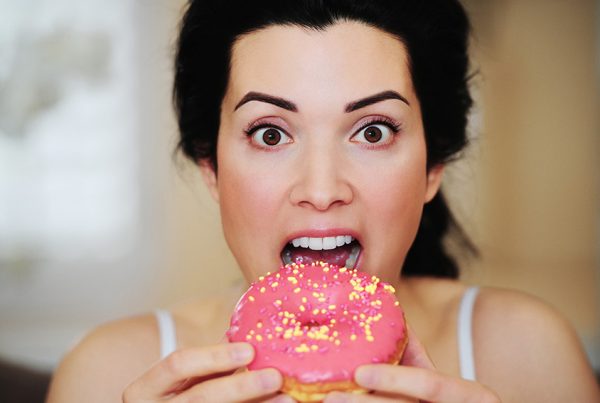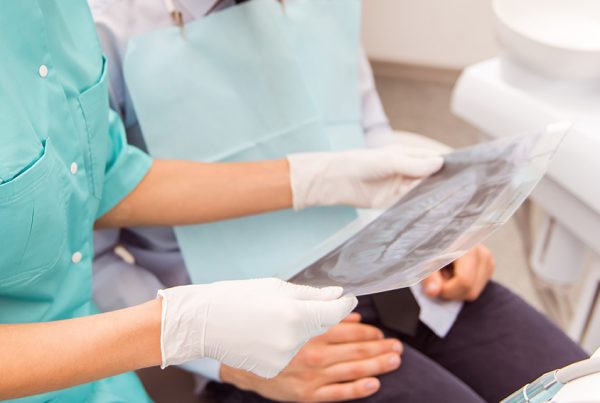Toothache is horrible. And it’s even worse if you have toothache during a global pandemic when all of the dentists are closed. Corona virus and Covid 19 have, of course, caused huge problems all over the world. One of those is that dentists in many countries have been forced to shut their doors. What can you do at this time while the dentist is shut? Well, below is a video where our resident dentist, Dr Andrew Wilson, describes the different types of toothache, what they might mean and how you can manage the symptoms.
If you are in the UK and you have toothache, you may be able to get an appointment at an ‘Urgent Care Hub’ which is being organised by your local NHS authority. Call our local dentist or 111 to find the hub closest to you.
What I’m going to try to do is give you an idea of what your pain could be, based on how it feels. So I’ll write a few symptoms and then put what could be causing it. Then I’ll come at it from another angle and write about a few causes of pain and how they will feel.
If you are currently having toothache, hopefully what you can do is look at a couple of your symptoms to give you an idea of what’s going on. Then when you have an idea of what the problem is, you can move onto the next part with more info on how it might feel and what you might need doing.
The idea is that you can have a rough idea of what your dentist might say to you. It’s obviously not a replacement for seeing your dentist but it hopefully is helpful in preparing you for what might be needed.
SYMPTOM & WHAT COULD IT BE?
Short, sharp pain with hot or cold. Only lasts a few seconds
Sensitivity or decay.
Short, sharp pain with temperature that lingers for a while
This may indicate decay or irritation to the nerve of a tooth.
Throbbing pain
May indicate an increase in pressure caused by inflammation. It could be a tooth dying or an infection.
Swelling next to a tooth
May indicate an infection.
Short, sharp pain only when biting
Could indicate a fractured tooth.
Pain on biting as well as at other times
Again, may indicate an infection.
Pain when opening your mouth or limited opening
This could be an issue with your wisdom tooth or it could be to do with the jaw joint.
Pain in your ear in the morning or after eating
May be caused by the jaw joint and muscles.
Tooth ache during a cold or flu
Can be to do with the teeth or it could be sinusitis when your sinus is bunged up by your cold.
PROBLEM, HOW YOU WILL FEEL & TREATMENT OPTIONS
Sensitivity
HOW WILL IT FEEL?
Short, sharp pain caused by temperature changes like hot or cold or maybe sweet things. Like a small electric shock. It will go within a few seconds. This sensitivity may be caused by some exposed root surface where the gum has shrunk back slightly. It could be caused by a deep filling or it could be an alert to some early decay.
TREATMENT OPTIONS
Sensitive toothpaste. Protect sensitive area with protective layer. Treat any decay.
Decay
HOW WILL IT FEEL?
This will quite often be exactly the same as ‘sensitivity’. There may be a short, sharp, electricy pain with temperature changes like a cold drink. It can be caused by sweet things as well. It may be that if there is decay then the discomfort lasts a little longer. The short, sharp pain may linger as an ache for a couple of minutes.
TREATMENT OPTIONS
Filling. Possible need for root canal or extraction if very big hole.
Dying tooth
HOW WILL IT FEEL?
If a tooth is dying then the pain is going to last much longer than a few minutes. The pain may be made worse by temperature and it will linger for a long time. It is likely to be a throbbing pain that can stay for hours. The pain might start on its own and it might wake you up. Often, you won’t be able to tell which tooth is the painful one. You might not even be sure if it is top or bottom.
TREATMENT OPTIONS
Root canal. Extraction.
Dead tooth
HOW WILL IT FEEL?
Similar to when the tooth is dying, it may be a throbbing pain. It’s more likely to be painful when biting. Temperature probably won’t affect it very much. Now, you will almost definitely be able to tell which tooth it is because that tooth will be tender to pressure.
TREATMENT OPTIONS
Root canal. Extraction.
Abscess/ Infection
HOW WILL IT FEEL?
I’m talking about an infection under a tooth rather than a gum infection. Again, it’s probably going to be a throbbing pain that is worse with biting. Temperature won’t affect it. It may keep you awake and is probably going to be pretty constant. When there is an infection, there will be swelling.
TREATMENT OPTIONS
Antibiotics. Root canal. Extraction.
Gum infection
HOW WILL IT FEEL?
This is going to feel very much like an abscess under the tooth. It will be painful to bite. There may be a constant throb or ache. It may disturb your sleep. There may well be a swelling that you can see or feel. The difference between a gum infection and an infection under the tooth is that when there is a gum infection, the tooth may still feel the cold or even be very jumpy to temperature.
TREATMENT OPTIONS
Antibiotics. Deep cleaning/Treating any gum disease.
Cracked tooth
HOW WILL IT FEEL?
There is probably no pain at any time apart from when you bite on the tooth or maybe have a cold drink. When you bite on the tooth there may be a short, sharp pain like sensitivity. It may be quite electricy. It probably won’t last very long. It may be that it only happens when you bite on harder things.
TREATMENT OPTIONS
Filling. Crown. Possible root canal or extraction if the tooth dies because of the crack.
Infected wisdom tooth
HOW WILL IT FEEL?
You are probably going to feel it towards the back of your mouth. The area may feel swollen. There may be a constant feeling of pressure in the area. When it flairs up, you will probably find that you can’t open as wide as you normally can. You may not be able to completely close together because the swollen gum is getting in the way.
TREATMENT OPTIONS
Antibiotics. Extraction.
Jaw joint pain
HOW WILL IT FEEL?
This may feel like an ear ache. It’s probably going to be a dull ache that hangs around. Again, you may feel that you cannot open as much as normal. You may find that the pain is worse in the morning if you have been grinding at night. You may find that the pain is worse after meals. There probably won’t be any swelling in your mouth.
TREATMENT OPTIONS
Rest jaw. Pain killers. Exercises. Night guard.
Book a consultation todayBook Now
Recent Articles
 Tooth decay is when you get holes (also known as cavities) in your teeth. This is caused by bacteria in plaque. It’s one of the main reasons why you need...
Tooth decay is when you get holes (also known as cavities) in your teeth. This is caused by bacteria in plaque. It’s one of the main reasons why you need...
 NB: If you come to this section in a rush because someone has knocked an adult tooth completely out, go to ‘Knocked out adult tooth’ article. Of course young children...
NB: If you come to this section in a rush because someone has knocked an adult tooth completely out, go to ‘Knocked out adult tooth’ article. Of course young children...




